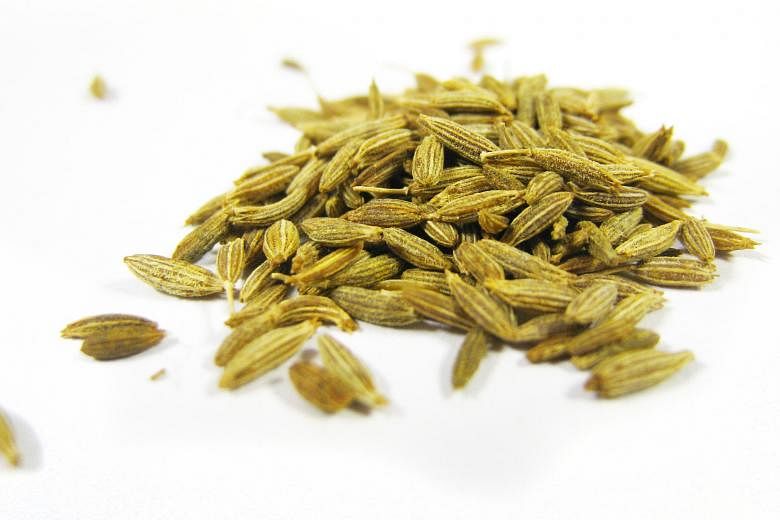(THE STATESMAN/ANN) - Spices not only add flavour and taste to the food, they are also nutritious and loaded with antioxidants.
Learn more about the spices that are commonly found in Indian kitchens, and their medicinal and health benefits.
Cinnamon
Buy as whole quills as ground version begins to fade in flavour with time.
You may grind it fresh whenever required to maintain its flavour and healing properties.
You can add a whole cinnamon quill to soups or stews, curry vegetables, vegetable rice or biryani and tea. Sprinkle its powdered form on fruits like apple or banana, and in desserts or puddings to give them a flavour lift.
Cinnamon is reputed to have antifungal, antibacterial, antiviral and even anti-carcinogenic properties. It may lower bad cholesterol (LDL) and control fasting blood sugar levels. Cinnamon can reduce both systemic and specific inflammation.

Be careful while buying the quills and look for those clearly labelled cinnamon. It is sometimes substituted with the cheaper Chinese cinnamon, or cassia
Ginger

Ginger is essentially the root of ginger plant.
It is a flavouring agent, but also contains chemicals that may treat various types of stomach problems such as indigestion. It is also reputed to be good for treating other minor ailments such as headaches and coughs.
Ginger extract is also applied to treat skin burns and insect bites. It is also used in cosmetic products to give them fragrance and medicinal qualities.
Surprisingly, it is the most widely used dietary condiment in the world today. With its anti-blood-clotting ability, when it is eaten with a combination of garlic and onion, it may offer protection against heart attack and stroke.
Ayurveda has also accepted the ability of ginger to boost the immune system and fight bacterial and fungal infections. This spice is truly a nature's blessing to the mankind.
Cumin

Cumin is extensively used in culinary practices of the Indian subcontinent as a condiment or spice.
It is generally considered to be an overall health booster and aids in digestion, improves immunity, treats an assortment of ills from piles and insomnia to the common cold and anaemia. It is extremely good for digestion and improves appetite. Loaded with iron, it is very beneficial for lactating mothers.
You may use cumin whole as seeds, or in ground form. Add it to vegetables, curries, rice, salads, fruit chats and curd.
Red chilli powder

It is not just fiery hot, but has nutritional value too. In India, red chilli powder has a significant position in all culinary preparations. A powdered form of dried, ground red chillies produces different seasonings with other ingredients.
Containing vitamin A, chilli helps maintain eyesight, takes care of bones, teeth, skin, internal membranes and the reproductive system. It acts as an excellent antioxidant and strengthens the immune system, heals injuries and fight against damage caused by free radicals.
With beta carotenoids, chillis may also give protection from major heart diseases, rheumatoid arthritis and osteoarthritis. It is a natural painkiller and enhances flow of fresh blood to the site of infection or injury. It enhances metabolism rate and brings relief to nasal congestion and open lung airways. While buying it, read the label carefully. The salt content should be from zero to 30 per cent. Generally it has a long shelf life if you store it in an air tight container and keep it away from heat and light. Store it in refrigerator if you want to use it after a year.
Turmeric

The bright yellow powder is used for colouring and flavouring food. It is also used for medicinal and cosmetic purposes. It is almost a no calorie spice, has zero cholesterol, and is used in almost all Indian curries.
It is rich in dietary fibre, iron, potassium, magnesium and vitamin B6. It has a good therapeutic value mainly because of its immunity boosting, anti-oxidant and anti-inflammatory properties. It may provide protection against certain liver diseases and type 2 diabetes.
Turmeric also aids weight loss.
The spice is a good home remedy for coughs, colds, throat infections, sprains and swellings.
In India, turmeric is considered sacred, auspicious and a symbol of purity, prosperity and fertility. So, it has an important place in Indian weddings and religious rituals. Turmeric is safe when used optimally. Use it with caution if you are pregnant, suffering from gall bladder problems or undergoing a surgery.





